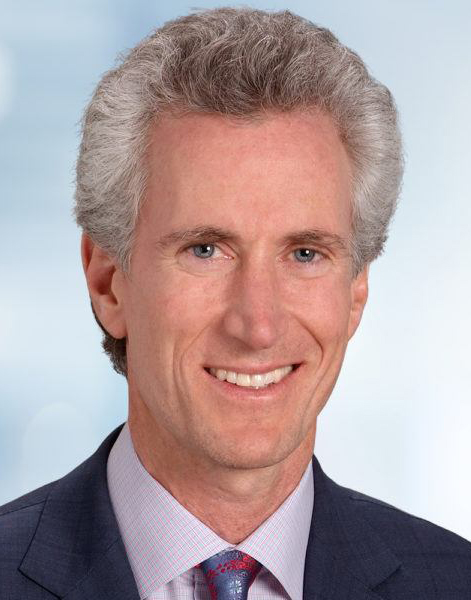 Pittsburgh, April 10, 2024 -- Michael T. Lawton, MD, the Robert F. Spetzler Endowed Chair for Neurosciences and chair of neurosurgery at the Barrow Neurological Institute in Phoenix, Ariz., will serve as the guest lecturer at the 6th Annual Peter J. Jannetta Lectureship at the University of Pittsburgh providing the talk "Seven Bypasses" May 1 at 7:15 a.m. Dr. Lawton is also president and chief executive officer, as well as chief of vascular and skull base neurosurgery at Barrow.
Pittsburgh, April 10, 2024 -- Michael T. Lawton, MD, the Robert F. Spetzler Endowed Chair for Neurosciences and chair of neurosurgery at the Barrow Neurological Institute in Phoenix, Ariz., will serve as the guest lecturer at the 6th Annual Peter J. Jannetta Lectureship at the University of Pittsburgh providing the talk "Seven Bypasses" May 1 at 7:15 a.m. Dr. Lawton is also president and chief executive officer, as well as chief of vascular and skull base neurosurgery at Barrow.
Specializing in the surgical treatment of aneurysms, arteriovenous malformations, arteriovenous fistulas, cavernous malformations, and cerebral revascularization, including carotid endarterectomy, Dr. Lawton is the leader of the largest cerebrovascular center in the country and has experience in surgically treating over 4500 brain aneurysms and over 900 AVMs. He also practices skull base tumor surgery and the endovascular treatment of aneurysms.
Dr. Lawton co-directs and conducts his research at the Barrow Aneurysm and AVM Research Center (BAARC), a collaborative research group funded by grants from the National Institutes of Health that investigates the physiology of cerebral circulation and the pathophysiology of vascular malformations. His basic science investigations study the formation, underlying genetics, and rupture of brain AVMs, as well as the hemodynamics, rupture, and computational modeling of brain aneurysms. His clinical investigations study the anatomy of microsurgical approaches to vascular lesions and the outcomes of aneurysm, AVM, and bypass surgery. He is the principle investigator of a NIH U54 grant and program director of the Brain Vascular Malformation Consortium (BVMC), a multicenter group studying malformations associated with Hereditary Hemorrhagic Telangiectasia, cavernous malformations, and Sturge Weber Syndrome.
Dr. Lawton has published over 500 peer-reviewed articles, over 70 book chapters, and six textbooks, including Seven AVMs: Tenets and Techniques for Resection, Seven Bypasses: Tenets and Techniques for Revascularization, and Seven Aneurysms: Tenets and Techniques for Clipping, which has won numerous awards and sold more copies than Yasargil’s Microneurosurgery .
His awards include the Young Neurosurgeon Award from the World Federation of Neurological Societies, the Harold Rosegay Teaching Award, and the Diane Ralston Clinical and Basic Science Teaching Award. He has given over 800 invited lectures nationally and internationally, including visiting professorships at over 50 neurosurgical institutions. He has been active in resident teaching, directing the CNS Anatomy Course for Senior Residents, co-directing the AANS Vascular Skills Course, and directing industry-sponsored anatomy courses. He sponsors an observership in vascular neurosurgery that has hosted more the 100 neurosurgeons and residents nationally and internationally. He co-founded Mission:BRAIN, a teaching mission to raise the level of neurosurgery practiced in developing countries, and has conducted seven missions in Mexico and the Philippines.
The Peter J. Jannetta Lecture—focusing on innovations in the field of neurosurgery—is held annually in honor of the former chair of the University of Pittsburgh Department of Neurological Surgery. Dr. Jannetta was world-renown for his development of microvascular decompression (MVD), an innovative procedure that moved blood vessels away from the trigeminal nerve, alleviating chronic pain and spasms in facial muscles. The procedure became commonly known as the "Jannetta Procedure" around the world and brought relief to thousands.
